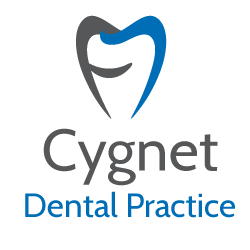Can The Cooler Winter Months Affect Oral Health?
Cold weather can play its part in damaging our teeth and gums. Here is how you can help prevent it….
 It doesn’t seem long since we were writing about how really hot weather can damage your teeth, but these last few days have seen a drop in temperature and there is definitely an autumnal feel in the air.
It doesn’t seem long since we were writing about how really hot weather can damage your teeth, but these last few days have seen a drop in temperature and there is definitely an autumnal feel in the air.
Some of us enjoy the cooler weather, but especially with energy price increases, it is likely to be a challenging time for many in the coming months.
As with hot weather, the other extreme of cold can have an impact on our oral health. In the same way that we dress differently for colder weather, we should also make a few changes to help protect our teeth and gums against the problems that the cooler months can bring. In today’s blog, your local Wickford dental team takes a look at what you can do to help yourself.
Watch the warming ‘comfort’ foods
As the cold weather approaches, we are likely to start abandoning healthier foods such as salads and start to eat those which are higher in fats in order to help keep ourselves warm. This is perfectly natural and you can see it widely replicated in the animal kingdom. Whilst we need to take care not to overindulge in this in order to avoid obesity, the real damage for our teeth is in the fact that many foods that have a high fat content also contain large quantities of sugar too. This applies not only to the cakes and biscuits that we eat, but also many ready meals too.
We are also likely to drink more hot drinks at this time of the year, for obvious reasons. While we can control the amount of sugar that we put into tea or coffee, some products such as hot chocolate and similar drinks may already contain quite a lot of sugar, so please bear this in mind before you add any extra.
Stay well hydrated
Drinking water on a cold day may not seem the most appealing thing that you can do but it is necessary to maintain good health, both general and oral. Despite the fact that we may not feel as thirsty, it is still easy to become dehydrated even on the coldest day. As we know from previous Cygnet Dental Practice blogs, dehydration greatly increases the risk of gum disease and, as well as having regular appointments with our hygienists, patients also need to take responsibility for their own oral health. Drinking sufficient water is one of the easiest ways assist this.
Protect your teeth from the cold
During changes in the weather, our teeth expand and contract like many other materials. This can expose tiny cracks which allow the cold to penetrate into the centre of our teeth, often causing some discomfort. While much of this is natural and can be countered by protecting your mouth from the cold winds and by breathing through the nose where possible, any teeth that have suffered from enamel damage, whether wear or erosion, are likely to cause discomfort when they meet cold air.
Prevention is key here and making sure that you brush your teeth correctly and avoid enamel eroding food and drinks should help you avoid much of the discomfort. If you are especially sensitive to the cold, you may wish to change your toothpaste to a sensitive tooth one over the colder period of the year. If the problem is very painful and persistent, it may mean that the enamel on your teeth is damaged and you may wish to discuss with us the possibility of having treatment, for example veneers, to help prevent this in the future.
Teeth clenching and ‘chattering’
As we brace ourselves against the cold wind, we have a tendency to clench our teeth together. This inevitably puts pressure on them and any teeth that are weakened could crack or even break under the strain in some cases. It may also contribute to general oral issues such as TMJ which can cause pain around the hinges of the jaw.
Finally, although we are unlikely to do this other than in very extreme temperatures, we might experience our teeth ‘chattering’. This could cause them to chip and crack so unless it really is unavoidable, please try to avoid it.
Sinus infections
Autumn and Winter are traditionally times when we are more likely to catch colds and other infections. Some of these, such as a sinus infection, can cause our teeth to hurt, especially on the upper back row. This doesn’t necessarily mean that your teeth are damaged, which is good news, but you should still look at treating the cause of it. In addition to any discomfort sinus infections may cause, they are also likely to make you breath through your mouth more, leading to an increased risk of a dry mouth.
Like any other time of the year, the most important thing that you can do is to maintain a good oral home care regime. Make sure that you continue to brush your teeth well, use floss and keep regular appointments with our Wickford dental and hygienist team to help keep your teeth as healthy as possible.
We hope that the above tips help during the colder months ahead and if you wish to speak to one of our team, or to book a check up or treatment appointment, you can call the Cygnet Dental Practice on 01268 733078.
